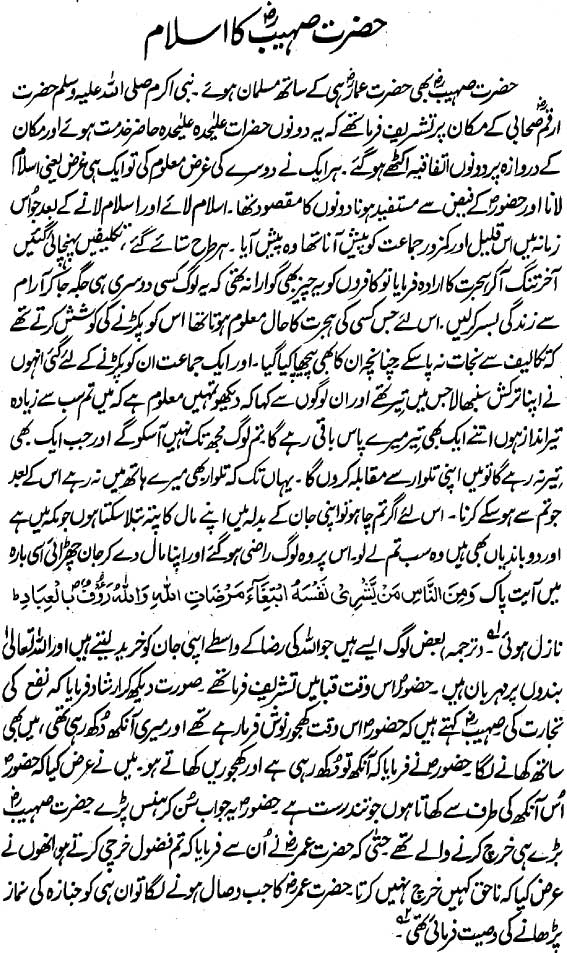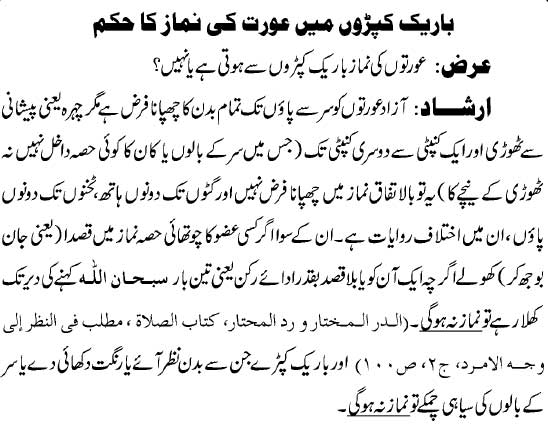
Ehd Khulafa-e-Rashideen Mein Aman Aur Rawadari


(23:1-7) Successful indeed are the believers; who are reverent during their Contact Prayers (Salat). And they avoid vain talk. And they give their obligatory charity (Zakat). And they maintain their chastity. Only with their spouses, or those who are rightfully theirs, do they have sexual relations; they are not to be blamed. Those who transgress these limits are the transgressors.
2:235] You commit no sin by announcing your engagement to the women, or keeping it secret. GOD knows that you will think about them. Do not meet them secretly, unless you have something righteous to discuss. Do not consummate the marriage until their interim is fulfilled. You should know that GOD knows your innermost thoughts, and observe Him. You should know that GOD is Forgiver, Clement.
[24:31] And tell the believing women to subdue their eyes, and maintain their chastity. They shall not reveal any parts of their bodies, except that which is necessary. They shall cover their chests, and shall not relax this code in the presence of other than their husbands, their fathers, the fathers of their husbands, their sons, the sons of their husbands, their brothers, the sons of their brothers, the sons of their sisters, other women, the male servants or employees whose sexual drive has been nullified, or the children who have not reached puberty. They shall not strike their feet when they walk in order to shake and reveal certain details of their bodies. All of you shall repent to GOD, O you believers that you may succeed.

1. Lo! those who purchase a small gain at the cost of Allah’s Covenant and their Oaths, they have no portion in the Hereafter, Allah will neither Speak unto them nor will
(AlQuran. Surah AAlImraan. Para # 4)
Penance For Breaking An Oath:
1. They destroy themselves (by taking false oaths), and Allah knoweth that they verily are liars.
(AlQuran. Surah AlTauba. Para # 10)
2. Allah does not hold you accountable for your laghw (ineffectual) oaths, but He does hold you accountable for the oath with which you have bound yourself. Its expiation is to feed ten poor persons at an average of what you feed your family with, or to clothe them, or to free a slave. However, if someone cannot afford, he has to fast for three days. That is expiation for the oaths that you have sworn. Take care of your oaths. That is how Allah makes His signs clear to you, so that you may be grateful.. (AlQuran. Surah AlMaaida. Para # 6)

The Prophet (peace be upon him) was known to love good smells. He sums up what he loved of material things in this present world, saying: “Of all that is available in this present life, I am made to love perfume and women, but the thing that gives me best gratification is prayer.” (Related by Ahmad and Al-Nassaie.) This does not mean that the Prophet disliked other things that people find pleasant or enjoyable. It simply means that the Prophet did not feel an urge to have luxuries or expensive articles that people are normally keen to have. Whatever was available was sufficient for him. Anything that served the purpose in hand was good enough.
He did not disdain to have the most modest, simple, and functional things. However, he was always keen that he always had a good smell. If he went through someplace or close to some activity that gave an unpleasant smell, he would immediately try to dispel that smell with some perfume.
The Prophet also loved women. He grew up in a community where women were treated as inferior to men in every respect. The message he was given, i.e. the message of Islam, lays much emphasis on the equality of men and women.
As God’s messenger who delivered His last message to mankind, he demonstrated such equality in the way he treated women and the guidance he provided to both men and women. He always urged his companions to be kind to their womenfolk and to take good care of them.
He also loved women’s company. Moreover, when it became necessary that he should marry several wives, for social, political, and legislative reasons, he did not feel this as a burden.
On the contrary, he was pleased to have them as part of his family. Some may read this Hadith as meaning that the Prophet had an extraordinarily strong sexual desire, but there is no suggestion of that in any Hadith.
However, nothing gave the Prophet greater satisfaction than prayer. Whenever he had a problem or felt stress, he resorted to prayer and it was certain to clear his stress.
Yet a good smell was important to the Prophet. He was keen that whoever was with him should be pleased with his smell. Therefore, the Prophet used to wear perfume when he went out. Lady Ayesha reports: “I used to give the Prophet the best smelling perfume we could have, and I would often see the brightness of perfume in his head and beard.” (Related by Al-Bukhari and Muslim.)
The phraseology of this Hadith indicates that perfume was an important article in the Prophet’s home and that his wives were keen to ensure that he had some perfume to wear when he left home. He wanted to make sure that he had a pleasant smell when he met people.
The Prophet’s practice is a Sunnah, which means that it gives a good example to follow. While this is required or recommended in religious matters, it indicates a good practice in other areas. If the Prophet did something that is unrelated to religion in a particular fashion, without saying anything to suggest that people should follow his example, then his practice is merely a matter of personal choice and is not a Sunnah.
However, if a person follows the Prophet’s example in such matters, believing that whatever the Prophet did was best, he is rewarded for his intention. Hence, many of the Prophet’s companions did that.
Nafi’ reports: “Abdullah ibn Umar used to be perfumed with aromatic smoke, using unsplit aloes and he would add camphor to it. He would say: ‘The Prophet used this type of smoke for perfume.” (Related by Muslim and Al-Nassaie.)
This Hadith speaks of a type of good smell that is still used in all parts of Arabia, which is the aromatic smoke. People everywhere use incense to give a good smell, and there are several types of plants that give such smoke. A type of aloe wood that gives perhaps the best smell is known in Arabia as the Oud, and Ayesha reports: “The Oud was the best type of perfume the Prophet loved.” (Related by Abu Al-Shaykh and Ibn Saad.)
People realized that the Prophet loved a good smell. Therefore, they often offered him a touch of perfume, and he would accept it willingly. Anas reports: “The Prophet never declined to have a touch of perfume offered to him.” (Related by Ahmad, Al-Bukhari, Al-Nassaie, Abu Dawood and Al-Tirmidhi.)
This Hadith is reported in more than one way. Another version that has a different chain of transmission also quotes Anas as saying: “God’s Messenger was never seen to decline perfume offered to him.” (Related by Al-Nassaie and others.)
The last two Hadiths suggest that accepting any perfume offered was a habit of the Prophet. This is clearly confirmed by a Hadith in which Ayesha reports: “The Prophet disliked to go out to meet his companions without wearing some perfume. He would have a touch of perfume toward the end of the night.” (Related by Abu Al-Shaykh.) Needless to say, Ayesha is referring to the time of dawn when the Prophet went out to the mosque to offer Fajr prayer.
He was keen that he should have a pleasant smell, always wearing perfume. It is a good practice to follow that we should wear some perfume before going out in the morning, whether to pray or when we go to work.

The Muslim society the Prophet (peace be upon him) established was a model society to the standards of which all subsequent Muslim generations aspired.
The Prophet’s companions were keenly aware of the change that occurred in their lives as a result of their adoption of Islam and implementing it. The gulf that separated their lives before and after Islam was great indeed. Hence they appreciated the meaning of a quality the Prophet indicated of true believers: that they should hate to relapse into disbelief as much as they would hate to be thrown into the fire.
However, the community that lived in that society was a community of ordinary human beings, with diverse characters and divergent interests. They experienced all the feelings and desires that motivate ordinary people. If they were prepared to work hard and go to war in support of their faith, they would certainly have preferred a comfortable and easy life. They withstood much hardship, leading a life of poverty for many years. This, however, did not change the fact that, like every one of us, they would have preferred a better standard of living. When the Battle of Hunayn was over, the Muslims gained great wealth. According to the rules Allah states in the Qur’an, one-fifth of all spoils of war go to the state. The others are equally divided among the soldiers, according to well-defined criteria. The Prophet gave a number of notables from Makkah very large gifts that made them truly rich. Until very recently, these were fighting hard to suppress Islam. Now, they were new Muslims, and indeed one or two of them were still unbelievers. Since these commanded positions of authority among their people, the Prophet wanted to purge their old hatred of Islam and to ensure that they were now committed to it
The Prophet did not give any such gifts to anyone of the Ansar, the people who never faltered in their commitment to Islam, enduring much hardship in the process. It was natural that they should feel that with such prizes available to the Prophet, they would receive their fair share. Therefore, when they realized that there was nothing coming their way, apart from their rightful shares, they complained. Their spokesman made their feelings clear to the Prophet, showing all due respect.
The Prophet spoke to the Ansar and reminded them of the great change Islam brought into their lives. They acknowledged this and expressed their gratitude to Allah and to the Prophet. He then started his own indebtedness to them, acknowledging that they gave him shelter when his own people were plotting to kill him, and they supported him against all enemies.
The Prophet then stated the situation that gave rise to their complaint, and he made the issues underlining it very clear. Those gifts went to people who knew very little about Islam so that they would feel that they would lose nothing of their material world when they accepted Islam. On the other hand, the Ansar were keenly aware of what Islam meant to them. He said: “People of the Ansar, are you aggrieved over a trifle of this world which I have given out to certain people in order to win their hearts over to Islam and left you to rely on your faith? Are you not satisfied, people of the Ansar, that other people should go to their quarters with sheep and camels while you go back to your own quarters with Allah’s Messenger? By Him who holds Muhammad’s soul in His hand, had it not been for my emigration I would have been one of the Ansar. If all people went one way and the Ansar went another way, I would take the way of the Ansar. My Lord, shower your mercy on the Ansar, and the Ansar’s children and the children of their children.”
– By NAUSHAD SHAMIM AL-HAQ

Backbiting is one of those Islamic topics that often gets sidelined. Appearing as one of the frequent tarbīyyah topics in common circles and gatherings, the issue may be forgotten or ignored. This is severely problematic, as backbiting is one of the most devastating sins a person can ever commit, and not keeping ourselves reminded about it can lead to grave consequences. To make it fresh in our minds again, let’s tackle the issue in a practical way. Here are 5 common misconceptions that we ourselves or others you encounter may have about backbiting, what is misunderstood, and how to respond to them.
Misconception #5: I’m not backbiting, I’m just saying.
When people respond with, “I’m just saying,” they’re telling themselves that what they’re mentioning is not something so bad as backbiting, it’s just “saying” things as they are. In other words, they’re trivializing the act, and telling themselves that backbiting isn’t really all that bad.
But backbiting is no walk in the park. It’s one of the most disgusting acts one could ever commit. That’s why Allah subḥāna wa ta’ala asks those who backbite, “Would one of you love to eat the flesh of his dead brother (or sister)?”1 God, Himself is comparing backbiting to something vilely rancid, so no one is fooled to think it’s not an inhuman act like that of murder or rape. The imagery of you eating the dead carcass of the person you’re talking about really paints a clear picture.
Not only that, Allah is asking us if we would love eating that flesh. It’s as if He is saying not only is backbiting as disgusting as eating that person’s dead flesh when we backbite, it’s as if we enjoy eating it, too.
Response: Describe to them how disgusting an act backbiting really is.
“You’re not, just saying. You’re going to that person’s body after their Janazah, ripping off their thigh, chewing it up, and enjoying it, too.”
Misconception #4: I’m not backbiting, everyone already knows about this person, anyway.
If a person is mentioning things about someone already known, not only are they still backbiting, they’re following the footsteps of hypocrites. The hypocrites of Medinah spread rumors about ‘A’isha, may Allah be pleased with her, and as a result were cursed by Allah to the depths of Hellfire.
Hellfire, which was intensified by Allah for thousands of years, turning its flame from orange to red to yellow to black, and burns 70 times worse than Earth’s fire (minimum 210th degree burns?). The same Hellfire where those who spread lies about others get hooks pierced into their cheeks and slammed back to rip off their faces, and are given scalding hot puss to drink as a relief.
If everyone already knows about it, why spread it and potentially go to the horror that is Hell? And if not the Hellfire, then being punished in the grave with copper nails repeatedly scratching your face and chest off? The risk simply isn’t worth it.
Response: Remind them about the punishment of backbiting and how it makes spreading rumors not worth the risk.
“Mentioning what everyone already knows about somebody is a dangerous path to Hellfire. Is spreading the news so important that it’s worth living with black fire that’s 70 times hotter, boiling puss drinks, and having your cheeks ripped off your face?”
Misconception #3: I’m not backbiting, I’m warning others about a person’s mistakes.
Human beings have a natural desire to warn others about harm. That’s why when they see something wrong with someone else, they’ll personally identify those characteristics as a problem, make a decision to be careful about it for themselves, and naturally want to notify others about it as well.
But that’s where the problem comes in. We want to naturally talk about someone else’s faults, but if we do, it’s backbiting. How can we get past this natural desire that’s so troublesome?
Simple. First, we need to realize which of these natural tendencies is okay and which isn’t. It’s completely okay to be adverse to the faults of others. However, telling others about those mistakes, while naturally easy, is the major sin of the two.
The Prophet sal Allahu ‘alayhi wa sallam said backbiting is “talking about your brother in a manner which he does not like.” That means saying anything about the person that they wouldn’t want you to counts as backbiting. If you know the person you’re talking about wouldn’t like what you’re saying about them, don’t say it.
If we feel the desire to go out and warn someone about it, do so on the person with the faults in the first place in a kind and sincere manner. Our problem as Muslims is that we talk a lot about people behind their backs but never confront them in person.
Secondly, on an encouraging note, remember that by not backbiting, we get closer to guaranteed Paradise. The Prophet sal Allahu ‘alayhi wa sallam said whoever guarantees control over what is in between their thighs and their jaws, he will guarantee them Paradise.
This guarantee is awesome in two ways. Not only makes not backbiting easier because of the amazing goal attached to it, it comforts us in the fact that our religion understands. Notice how the Prophet sal Allahu ‘alayhi wa sallam asked for whoever guarantees control, showing that he knows it’s natural to lose control. But at the same time, he’s encouraging us to take that control and work towards Paradise.
Response: Explain to them what backbiting is and the reward of abstaining from it.
“Talking about others negative traits in any way shape or form is backbiting and none of your business, and if you stay away from it you’re working towards guaranteed admission to Paradise.”
Misconception #2: I’m not backbiting, I’ll tell them later or I don’t care, I can say it to their face.
Some people justify backbiting by thinking if they inform the person later they were talking about them behind their back, it makes the act okay. But telling someone you backbit about them after the fact is a part of the process of repenting and making up for the sin. It has to be done sincerely, with regret and shame for the act, driven by a balanced fear of Allah’s punishment and a hope in His Mercy.
Trying to justify backbiting by telling someone you backbit about them is like trying to justify believing Prophet Jesus, peace be upon him, as the son of Allah by saying you will just repent later. Not only is it an imbalance between fearing Allah and having hope He will forgive you, it doesn’t make the act okay to commit in the first place.
What’s worse is when some people claim they, “don’t care” about backbiting and they supposedly can or will say what they backbit about someone to their. Not only is that even more of a misunderstanding than planning to tell them later, it just shows two things. One, they’re just a jerk. It isn’t bad enough that they’re backbiting, but they have to go and act “brave” by claiming they can tell the person the insult to their face.
In addition to being a jerk, they also need to be careful when they say, “I don’t care.” Do they really not care? And what do they not care about? They don’t care about incinerating in that 70 times hotter black fire we mentioned before? And having their cheeks ripped off your face and having to drink searing hot puss afterward? Are they really sure they don’t care? Chances are no.
Response: Backbiting about someone with the intention to tell them later doesn’t make it okay. It’s still backbiting. And claiming you, “don’t care” and can say it to their face shows that you’re a jerk and don’t care about the Hellfire.
Misconception #1: I’m not backbiting, it’s true.
This, by far, is the most common misconception and response we find Muslims making when we warn them about backbiting. They think that backbiting is only when you mention bad things about people that aren’t true. Is that really the case?
Going back to the definition of backbiting, the Prophet sal Allahu ‘alayhi wa sallam said backbiting is to mention things about your brother (or sister) which they don’t like. After the Companions heard this definition, one of them asked, “what do you think about if what I say about that person is true?”
“If (that) is actually found (in that person) what you claimed, you, in fact, backbit him. And if that’s not in that person, it’s slander,” the Prophet sal Allahu ‘alayhi wa sallam answered.
This shows that we’ve got it all wrong. Just because what we’re saying is true, doesn’t mean it’s not backbiting. In fact, it proves that we are indeed backbiting because backbiting is true information. If it wasn’t true, we’d be doing something worse than backbiting, slander.
That makes a whole lot of things count as backbiting. That’s why when ‘A’isha said about Ṣafiyya, the wife of the Prophet sal Allahu ‘alayhi wa sallam who was the daughter of a Jewish leader, that, “she’s short,” he got upset and said, “you have said a word that if were to be dropped into the sea it would contaminate it.”
‘A’isha and the Prophet sal Allahu ‘alayhi wa sallam knew about Ṣafiyya’s height. So did everyone else who saw her in Medinah, and all the people from her tribe before she married the Prophet. In other words, what ‘A’isha said was as true as it gets. But the fact that it was true made it backbiting. And if something as small as what she said was poison to the entire sea, what about when we talk about how people may be gaining weight, undergoing a divorce, losing their hair, struggling to control their anger, failing to give up a public sin, or anything else they wouldn’t like said about them?
Response: Inform them about the truth being backbiting and falsehood being slander.
“Yeah, you’re backbiting, because the Prophet sal Allahu ‘alayhi wa sallam if it’s true, which you’re saying it is, then it’s backbiting.”
Conclusion
Backbiting is no misdemeanor. It’s a federal offense. In fact, it’s more than that. It’s a universal act of ethical treason, the likes of which transcend this world and has severe consequences in the next.
We need to remember that when we signed up to become Muslim, we agreed to follow all of the rules, and one of the rules is that for anyone else who signed up for the contract of La ilah ha illa Allah, Muḥammmad al-rasulullah you can’t ever talk behind their back. Doing so is not only a horrible sin and a disgusting act, it’s one of the worst things you could ever do to your Muslim brother or sister.
While you may be fired up to use the responses to these misconceptions and are trying to think of people you could use them on, ask yourself if the person to respond to is none other than you. Do you have these misconceptions about backbiting? Have you ever made any of these five justifications or something similar to them? If so, give yourself the responses and work on yourself first, and eventually, you can work on correcting others, as well.
Al Huda Institute
